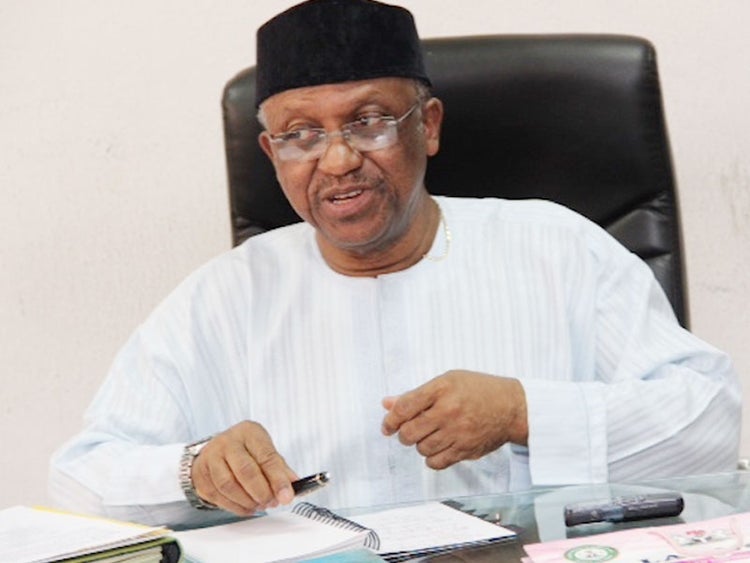Recently, the Minister of Health, Dr. Osagie Ehanire, lamented that Nigeria’s increasing population is hindering development in the country, which in turn is having an adverse effect on the quality of life for Nigerians.
The minister spoke at the launch of the 2022 State of the World Population Report organised by the United Nations Population Fund, on June 1, with theme ‘Seeing the Unseen: The Case for Action in the Crisis of Unintended Pregnancy’.
- Military releases schedules for Borno farmers, lifts ban on bicycles
- NIGERIA DAILY: Muslim- Muslim Ticket Not To Be Contemplated; CAN
It is indeed common knowledge that Nigeria is currently one of the countries with high population in the world. The minister put the country’s population at about 214 million. Nigeria has also been projected by the United Nations Population Division to be the third-most populous country by 2050, with a population of over 410 million, next to only India and China, in that order.
This expected meteoric rise is predicated on two key variables – the population growth rate and total fertility rate, which the minister put at 3.2 per cent and 5.3 per cent respectively. While the growth rate refers to the rate at which the number of people in the country rises yearly, the fertility rate refers to the number of children per woman in the country. With the global fertility rate currently put at about 2.5, it is clear that Nigeria’s is more than double that, so it is not surprising that we are growing so fast.
However, despite the minister’s lamentations, Nigeria’s seemingly large population can be put to great advantage so that it works for the country. But that calls for the government to put a number of things in place that are currently lacking in our population management processes.
The first missing variable is a National Population Policy. It is pertinent to point out that currently, Nigeria lacks a clear-cut population policy that can guide the management of the nation’s population and help to check population explosion. Among others, such a policy document will spell out the government’s position on such issues as birth and death registrations, childbearing –including the number of children per woman (the fertility rate), as well as on matters that border on family planning, etc.
It is a fact that Nigeria does not have reliable records of births and deaths. How many women go to health centres? Many women, especially those in the rural areas, give birth at home, in which case there may be no record of such births or deliveries. It is the same about records of deaths, which are also not painstakingly kept. Now, without good records, no country can plan properly. This is responsible for the shameful situations where dead people’s names remain on official records, including voters’ lists and payrolls (especially in the public sector) years after they have died!
For instance, on the fertility rate, a national population policy would state clearly whether it refers to the number of children per woman or in a family. This is an issue given the practice of polygamy that is common in our clime. This debate came to the fore during the regime of General Ibrahim Babangida, when his administration raised the issue of the number of children per woman. Did the government limit the number of children that a woman can have to four? If it is so, how does this apply to a polygamous home, where one man has more than one wife? That question has not been adequately addressed, in our view.
The population policy would also spell out the mechanisms for effective family planning as a core component of population control measures. It would make provisions for the availability of family planning, including the funding arrangements that would ensure access to such programmes by women of childbearing age. These would help not only to reduce the fertility rate but also ensure adequate spacing between pregnancies.
There is also an urgent need to incorporate religious leaders in the area of family planning and birth control measures. This is based on the belief that with the influence of such leaders, they would be able to influence the behaviours of their adherents.
Beyond the above-suggested policies, there is a need for Nigeria to quickly address its industrialization policy with a view to engendering industrial growth, job creation, and expanded opportunities for the nation’s teeming youths. Nigeria needs a functional manufacturing sector that can absorb or meaningfully engage the youths, millions of whom are currently unemployed. A situation where the unemployment rate in the country is in the region of 33.3 per cent and youth unemployment at about 53.4 per cent, smacks of a nation sitting on a tinderbox waiting to explode at any time. To further guarantee space in the economy for ordinary Nigerians, there must be a fundamental restructuring of the country’s educational system to ensure the empowerment of the next generation. Currently, it is estimated that as many as 16 million Nigerian children are out of school, including those who have never been to school even once. In today’s knowledge-based economy, Nigeria cannot afford to toy with the educational system.
Funding for the educational system, including the universities, must be properly structured to ensure that our young ones have meaningful lives. Nigerians must also key into this project for it to work. Citizens must make a conscious effort towards management of the population.

 Join Daily Trust WhatsApp Community For Quick Access To News and Happenings Around You.
Join Daily Trust WhatsApp Community For Quick Access To News and Happenings Around You.


